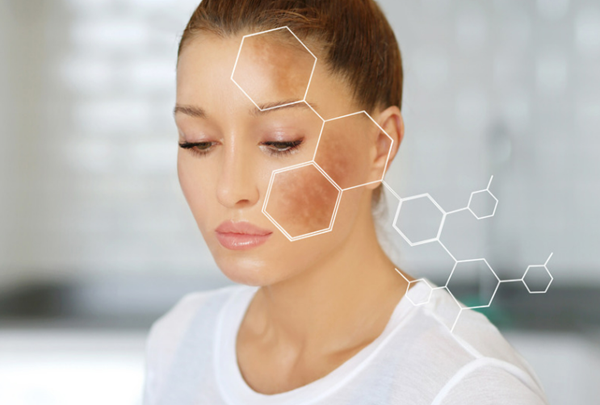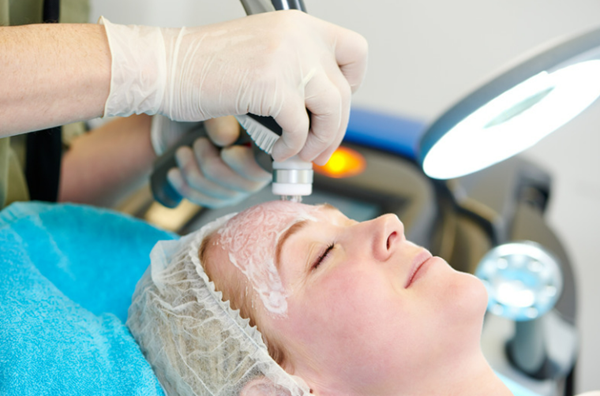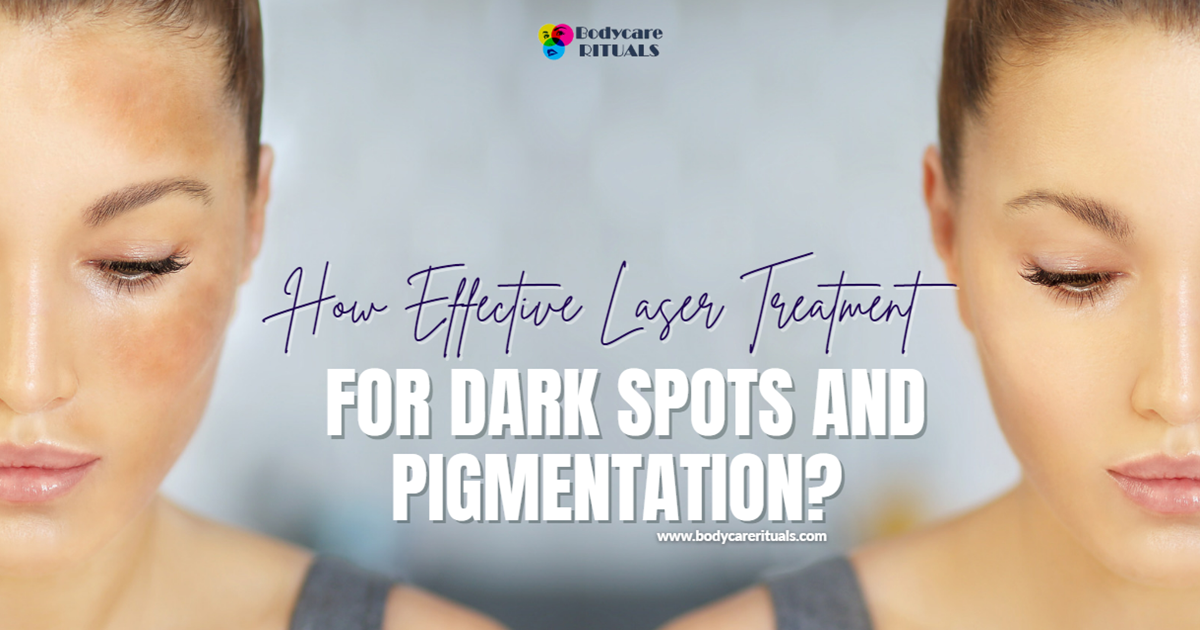Are you tired of those stubborn dark spots and pigmentation that refuse to fade away? Have you tried countless creams and home remedies with little to no success? If so, it’s time to explore the world of effective laser treatment for dark spots and pigmentation. This revolutionary treatment has been gaining popularity for its promising results and numerous benefits. Let’s dive in and discover why you should consider this treatment.
Understanding Dark Spots and Pigmentation
Dark spots and pigmentation are common skin conditions that occur when melanocytes, the pigment-producing skin cells, become overactive and produce more melanin than usual. Melanin is the substance that gives the eyes, skin, and hair their color. When the amount of melanin is overproduced due to factors such as direct sun exposure, hormonal changes, or aging, it can lead to conditions related to skin pigmentation such as hyperpigmentation (dark spots), hypopigmentation (light spots), and depigmentation (white spots or patches).

These conditions can affect anyone, but they are more common among people with darker skin tones. This is because individuals with darker skin have more melanin, which can lead to a higher likelihood of developing dark spots and pigmentation.
While these conditions are not harmful, they can affect a person’s self-esteem and confidence. This is particularly true in societies where there is a great emphasis on skin appearance. Dark spots and pigmentation can be a source of cosmetic concern for many, leading them to seek treatments to lighten or remove these spots.
In addition to cosmetic concerns, dark spots and pigmentation can also be a sign of underlying health issues. For instance, certain medications can increase skin pigmentation and lead to dark spots. Similarly, conditions like diabetes and skin cancer can also cause changes in skin pigmentation. Therefore, if you notice sudden or significant changes in your skin pigmentation, it’s important to consult with a healthcare professional.
The Science of Laser Treatment
Laser treatment for dark spots and pigmentation, also known as a laser peel, lasabrasion, or laser skin resurfacing, is a non-invasive procedure that uses light energy to target and eliminate overactive melanocytes. Melanocytes are the pigment-producing skin cells that become overactive and produce more melanin than usual, leading to dark spots and pigmentation.

The treatment utilizes advanced laser technology to target and break down the excess melanin or pigment in the skin, resulting in a more even complexion and improved skin appearance. This treatment is highly effective because the laser can clearly differentiate between normal skin and the dark spot. The darker the skin cell, the more energy it absorbs, killing that particular cell.
Several types of lasers are used to treat dark spots and pigmentation. For instance, Intense Pulsed Light (IPL) laser uses a broad spectrum of light wavelengths to target hyperpigmented areas directly. The light pulses heat and destroys melanin to remove discoloration and restore a more even complexion.
The laser treatments work by breaking down specific areas of the skin at the cellular level to shatter the pigments into smaller pieces, which are then removed by the body’s natural processes. This process leads to the fading of hyperpigmented spots and the brightening of the complexion.
Benefits of Laser Treatment
The effective laser treatment for dark spots and pigmentation offers numerous benefits that make it a promising solution for those struggling with these skin conditions:
- Elimination of Dark Spots: The treatment can potentially eliminate dark spots on the skin. The laser targets the melanin in the dark spots, breaking it down into smaller particles that are then naturally eliminated by the body. This process can result in a significant reduction or even complete elimination of dark spots.
- Quick Sessions: The sessions are quick, typically lasting between 15 and 30 minutes. This makes it a convenient option for those with busy schedules. Moreover, the treatment does not require much recovery time, allowing you to return to your normal activities shortly after the session.
- Targeted Treatment: The laser targets only the affected areas of the skin and not the surrounding tissues. This precision ensures that only the dark spots are treated, leaving the surrounding skin unaffected. This targeted approach reduces the risk of unwanted side effects and improves the overall effectiveness of the treatment.
- Renewed Skin Cells: The treatment stimulates the growth of new skin cells, leading to a more even, smoother skin tone and complexion. As the old, pigmented skin cells are eliminated, they are replaced by new, healthy cells. This renewal process can improve the overall texture and appearance of your skin.
- Boosted Self-Esteem: Dark spots and pigmentation can affect a person’s self-esteem and confidence. By effectively reducing or eliminating these skin conditions, the treatment can help improve your self-esteem. With clearer, more even-toned skin, you may feel more confident in your appearance.
Risks and Side Effects
Like any other treatment, laser treatment for dark spots and pigmentation also has some potential risks and side effects. It’s important to be aware of these before deciding to undergo the procedure:
- Skin Redness, Irritation, Swelling, and Peeling: These are common side effects that occur after the procedure. The treated skin may swell, itch, or have a burning sensation similar to a sunburn. Redness may be intense and might last for several months. However, these side effects are temporary and usually subside as the skin heals.
- Hypopigmentation: This is a condition where the skin lacks melanocytes, leading to lighter patches of skin. This can occur in the areas treated with the laser.
- Post-Inflammatory Hyperpigmentation: This is a temporary hyperpigmentation of injured or irritated skin that occurs more often in people with darker skin tones. This can happen as a reaction to the laser treatment.
- Bruising: Some lasers can result in bruising. This is usually temporary and subsides as the skin heals.
- Blistering or Scabbing: Uncommonly, an adverse reaction such as a blister or a scab can occur. These are usually temporary and heal with proper care.
- Changes in Skin Pigmentation: There may be a temporary loss or gain of pigment in the treated area, which may last for several months or, rarely, be permanent.
It’s important to note that these risks and side effects vary from person to person and depend on the type of laser used, the individual’s skin type, and the specific condition being treated. Therefore, it’s always recommended to consult with a dermatologist or a skin care professional before starting any new treatment.
Why You Should Try It
The Effective Laser Treatment for Dark Spots and Pigmentation is a promising solution for those who have been struggling with these skin conditions. Here’s why you should consider this treatment:
- Quick and Targeted: The treatment sessions are quick, typically lasting between 15 and 30 minutes. This makes it a convenient option for those with busy schedules. Moreover, the laser targets only the affected areas of the skin and not the surrounding tissues, ensuring that only the dark spots are treated, leaving the surrounding skin unaffected.
- Effective: Laser treatments have been shown to effectively treat hyperpigmentation for all skin types and tones. They work by precisely targeting melanin pigments in the skin. When the right laser wavelengths are used, it is able to specifically target the melanin to heat and break it up into smaller pigments that are later absorbed and removed by the body naturally.
- Improved Skin Tone: The treatment can help you achieve a more even and smoother skin tone. As the old, pigmented skin cells are eliminated, they are replaced by new, healthy cells. This renewal process can improve the overall texture and appearance of your skin.
- Boosted Self-Esteem: Dark spots and pigmentation can affect a person’s self-esteem and confidence. By effectively reducing or eliminating these skin conditions, the treatment can help improve your self-esteem. With clearer, more even-toned skin, you may feel more confident in your appearance.
- Long-Term Solution: Research shows that laser treatments are most effective when combined with other treatment methods, such as topical whitening creams and chemical peels. Some studies show that melasma recurrence is common, even when laser treatments initially eliminate dark spots. Long-term topical creams are often recommended to reduce the risk of melasma recurrence and post-inflammatory hyperpigmentation.
Should you try the Effective Laser Treatment for Dark Spots and Pigmentation?
In conclusion, the is a revolutionary treatment that offers a promising solution for those struggling with these skin conditions. It is a quick, targeted, and effective treatment that can help you achieve a more even and smoother skin tone. However, it is important to remember that every individual is unique, and the results of the treatment can vary. Therefore, it is always recommended to consult with a dermatologist or a skin care professional before starting any new treatment.



